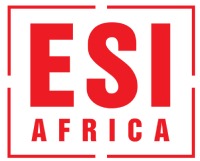High costs and low support hold back sustainable farming
Downstream actors such as agro-processors, manufacturers, and brands often expect their suppliers to comply with sustainability standards
A major barrier to scaling alternative water solutions across Africa is cost. Many technologies are highly capital-intensive, and smallholder farmers struggle to access them due to financial constraints, making sustainable farming a pipedream for many.
This was discussed on a recent webinar presented by Water Security Africa which focused on exploring scalable alternative water strategies driving food production and agro-industrial resilience.
Nozipho Soka, Founder and Managing Director of Rea Jala Veggies, highlighted the lack of information about the technologies available to farmers as another barrier.
Molatelo Motau, Sustainability Manager at HEINEKEN Beverages, noted that there is often resistance to adopting alternative technologies or new approaches, as many people still prefer traditional methods.
“From a technology point of view, some of the technologies are expensive. So financing those technologies, people are not aware of what financing mechanisms are there for them to then get alternative technologies within their villages.
“Also, I think in terms how this can assist with efficiencies, people have not tapped into that and understand how this can assist them in the long term,” said Motau.
From costs to certifications: The hidden hurdles in sustainable agriculture
Daniel Viviers-Rasmussen, Principal at NewForesight, explained that while significant funding goes into water solutions, including in agricultural supply chains, this support often disappears once grant or government funding ends.
“Typically, there is no interest from the market, from the private sector, in terms of continuing to work on these different solutions. And why is that? Well, it obviously differs for the different supply chain actors, but generally, there is not a sufficient commercially viable model.”
He shared that when it comes to smallholder agriculture, downstream actors such as agro-processors, manufacturers, and brands often expect their suppliers to comply with sustainability standards.
“They push whatever certification down the supply chain, right? There’s not actually enough support for farmers to adopt new practices. So if we say that large agro-processes cannot actually make a business case for adopting more efficient water practices, how can we then expect smallholder farmers to do the same?” asied Viviers-Rasmussen.
Cover photo: alfazetchronicles©123rf.com


